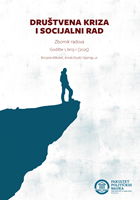SLOBODA MEDIJA KAO TEMELJ LJUDSKIH PRAVA
FREEDOM OF THE MEDIA AS A FOUNDATION OF HUMAN RIGHTS
Author(s): Mustafa SefoSubject(s): Media studies, Human Rights and Humanitarian Law, Theory of Communication, Sociology of Law
Published by: Fakultet političkih nauka - Univerzitet u Sarajevu
Keywords: free media; human rights; the public; democracy;
Summary/Abstract: Free, independent, and diverse media, along with the right to access information and express opinions, are essential for the effective functioning of democracy. Media freedom plays a significant role in protecting all other human rights. Drawing the public’s attention to facts is often a crucial first step in addressing human rights violations and holding governments accountable. The work of media professionals and journalists should be guided by the principle of autonomy, which is rooted in the freedom of the press established during the major political revolutions of the 18th century. At the core of the liberal concept of information is this principle of autonomy, which emerges from the Enlightenment's definition of freedom as a fundamental characteristic of human beings and a cornerstone of democratic society. These principles have formed the foundation of press philosophy for the past two or three centuries. Media faces various forms of pressure and control over content that compromise their independence and pluralism. Around the world, the existence of independent and pluralistic media is vital; wherever free speech is restricted or information is limited, individual freedom is at risk. This paper examines the significance of media freedom, focusing on its historical background, legal framework, and constitutional protections for freedom of speech. It also discusses international agreements and treaties related to media rights, as well as existing limitations and exceptions to these freedoms. Additionally, the paper highlights the media's role and responsibility in informing the public, addresses ethical dimensions, and explores challenges and controversies such as fake news and media freedom in authoritarian regimes. It further considers how media ownership can influence journalistic work. Given the complexity and dynamic nature of this topic, it is essential to address the challenges associated with freedom of speech continually and to foster an understanding of its importance.
Journal: Društvena kriza i socijalni rad
- Issue Year: 1/2025
- Issue No: 1
- Page Range: 253-271
- Page Count: 19
- Language: Bosnian

